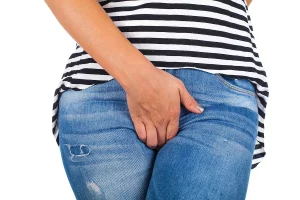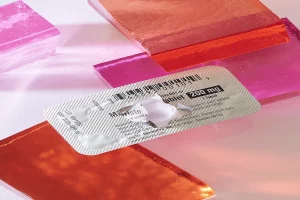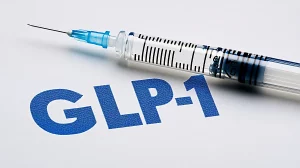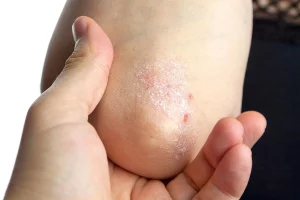WHAT’S in your tampon? How about your sanitary pad? Even though we put them inside our bodies and on the most absorbent parts of our bodies for many days per year, the thing is, we don’t actually know.
In the US the FDA does not require that corporations that produce menstrual hygiene products make their consumers aware of the ingredients. An outbreak of Toxic Shock Syndrome in 1980 caused by a super-absorbent tampon brand killed 38 women, and injured some 813 more. It wasn’t until those numbers climbed past 2,000 that the brand was pulled from the market. Due to public pressure, tampons were reclassified as medical devices and submitted to some stricter regulations. However, not only has TSS not gone away for good – some have observed that it is coming back for unknown reasons (in 2002 eight women in California died of the syndrome) – but neither have the other potential health problems associated with these products. Now is the time for increased and stronger advocacy for women’s right to informed choice.
Congresswoman Carolyn Maloney (D-NY) is reintroducing legislation that has been stalled and rejected by Congress again and again over the last two decades. The Robin Danielson Act, named after a victim of TSS, would require that the National Institutes of Health undertake research into whether menstrual hygiene products that contain dioxin, synthetic fibers, and chemical components such as chlorine and undisclosed fragrance ingredients might pose health risks for women. The act also asks that information on the contents be made public.
Of her work, Maloney has said, “There are many who believe that the multi-billion dollar menstrual hygiene industry will regulate itself, and because the potential risks associated with these products are not front page news, it’s easy to believe that there isn’t a real problem that needs to be addressed,” Maloney said. “That’s why it’s important to continue raising awareness.”
At this time, any research is completed internally by the corporations that make and sell these products, but there is little in the way of independently funded and conducted investigations. On this Chris Bobel, Society for Menstrual Cycle Research President and author of New Blood: Third Wave Feminism and the Politics of Menstruation, told me, “To date, the bulk of research on product safety has been conducted by the femcare industry itself. This is not uncommon. Typically, product testing is conducted by the actual companies who produce and sell the goods (think pharmaceuticals) and they submit the results of their tests to the FDA. But we need independent testing too and that’s what we are lacking.”
Andrea Donsky, an expert on women’s health and founder of the group Naturally Savvy, created the horrifying, yet educational, viral video ‘Pads on Fire’ that compares the burning of Always Infinity pads to that of Natracare 100% organic cotton pads. It will make you wince and cross your legs simultaneously. She also created a petition requesting that Proctor&Gamble disclose what they use to make their products, which has amassed some 14,000 signatures.
Women’s Voices for the Earth released their report ‘Chem Fatale’ last year in which they outlined the potential hazards of ingredients such as dioxins, furans, pesticide residues, and fragrance chemicals and their potential links to cancer, reproductive harm and endocrine disruption. The investigators argue that research rarely takes into account where these products are used – in a highly absorbent and permeable area of the body – when concluding on the risks involved. Potential health problems are waved away with assertions that we can find toxic chemicals in our food, clothes, and home furnishings at a much higher level (never a winning argument!). And it’s not just cancer we need to worry about (never a statement you want to hear), but also the higher risk of irritation, allergic reaction, yeast and bladder infections that can make life insufferable.
Another particularly useful consequence of this act becoming law is that other products made by smaller companies such as menstrual cups, cloth pads and sponges would also be researched and tested and as such be able to broadcast their own, shorter, list of ingredients for women’s comparison.
Seeing as they’re still debating whether members of Congress should say the word “vagina” out loud, it is — depressingly — unsurprising that this legislation has been rejected so many times.
Always recently released a campaign video titled ‘Like A Girl’ that was praised as a “game-changer for the feminist movement” due to its woman-positive message. But Always is also the producer of Always Dailies, pads for women to wear even when they’re not on their period, among a myriad of other permutations of the menstrual hygiene product.
Considering the aforesaid, is a company that suggests women wear a chemically-infused, possibly cancer-causing pad every single day in case she, you know, smells or leaks or something, really such a great supporter of women? And, more pertinently, do we trust Always to ensure their products are safe for us to use, especially when it might see a loss of at least some of the billions of dollars a year the menstrual hygiene industry generates?
Fight like a girl? That’s exactly what we need to do.
Per Chris Bobel – “Call and write your US Congresspeople! Tell them you support this bill. A call into your rep’s office is much more powerful than signing an online petition, though we each should do that too. But if the nearly four thousand people that signed that also called their reps in Congress, we could really get their attention!”

















